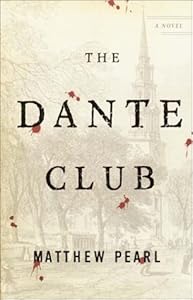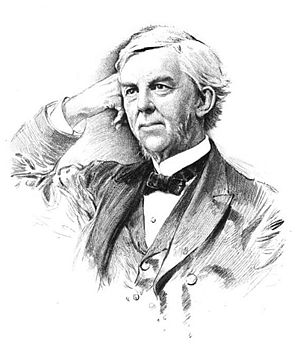Having finished The Dante Club by Matthew Pearl about a month ago, I have been mulling over the brute-force-research and immersion required for him to complete it. This is probably the most thorough work of fiction I’ve ever read. I mean, it’s like a non-fiction study with a serial murderer thrown in! While the fairly extensive exploration of the setting and characters could be a slightly arduous task for me, they were indeed necessary to the tale itself. This is certainly a murder mystery for uber nerds.
 Cover of The Dante Club: A Novel
Cover of The Dante Club: A Novelthe city and its citizens' (and denizens') struggle against the uncomfortable weight remaining in the wake of the Civil War. Veterans are unable to regain their easy place in society after everything they've endured...in the book they gather together, because in other veterans' company they feel understood. This phenomenon occurs after any war, but I think it is a testament to Pearl's ability to truly depict life in this time period and to truly create a Boston I felt I was experiencing first hand. I can't help but think of all the various stories I've read or heard on NPR detailing the difficulties faced by our new veterans of Iraq and Afghanistan.
What is so striking about this book is that it could easily be a non-fiction research project (although, much better written) and you cannot help but learn a little something while enjoying the story. At the end of each of Pearl's book Pearl includes a Historical Note section where you learn which components of the story are historically accurate and which, though consistent with some figure or another, are fiction.
The Characters...
While some are invented (although based usually on several real figures and using common experiences of the time), many are historical. As an attorney I found Oliver Wendell Holmes (Jr.)'s brief appearances interesting. But Dr. Oliver Wendell Holmes (Sr.) was even more enlightening (I mean, parents have a significant impact on their children). He’s a funny guy…and I love how delicately “Wendey” (Jr.) tries to protect his father regarding Sr.’s writing and rather fragile ego.
 Image via Wikipedia Image via Wikipedia |
| I had to put in this engraving of Dr. Holmes. It looks like an awkward senior picture complete with weird facial hair! |
The "Club" in composed of four primary members: Henry Wadsworth Longfellow, James Russell Lowell, Oliver Wendell Holmes (Sr.), and J.T. Fields. They all gather once a week to discuss and assist Longfellow in his translation of the Divine Comedy into English. There are other satellite members who pop in occasionally as well.
Pearl provides an interesting view into the lives of immigrants, more specifically Italian immigrants in Boston. It is fascinating to me that the Club’s translation of the Divine Comedy faced so much opposition from the old men running Harvard. I think it is something along the super-enlightened, mature line of “Protestants Rule, and Catholics (especially Italians) and their Literature Drool.” It's odd that what many of us deem today to be a romantic language spoken by cultured people was thought vile. That Latin and Greek were everything and Italian had no place in any Harvard student's education.
My favorite character is the invented Nicholas Rey, a half-white/half-black policeman-the first policeman of color in Boston. He has a difficult task before him: to catch criminals without being able to carry a gun, or to arrest white people.
There are several Italian characters in the book who virtually live Dante. The Club members seem to as well. Then there are the veterans who also are drawn in by the powers of Dante. I have never lived a book before. I’m not sure I want to. It’s something to think about.
More…
Another neat thing to note is the The Dante Club site includes the "lost" chapters that did not make the cut for the final book.


No comments:
Post a Comment